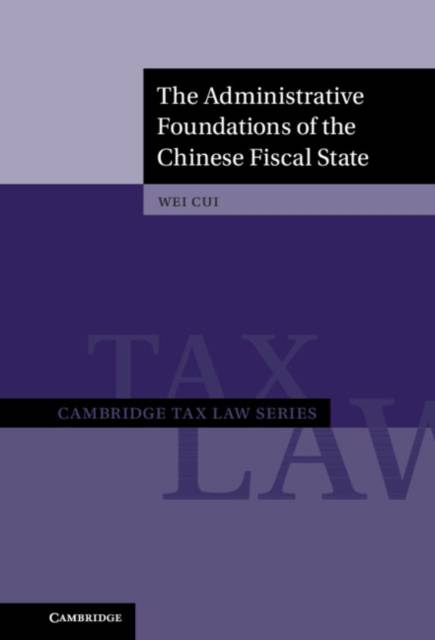
- Afhalen na 1 uur in een winkel met voorraad
- Gratis thuislevering in België vanaf € 30
- Ruim aanbod met 7 miljoen producten
- Afhalen na 1 uur in een winkel met voorraad
- Gratis thuislevering in België vanaf € 30
- Ruim aanbod met 7 miljoen producten
Zoeken
Omschrijving
On subjects ranging from trade to democratization, there has lately been a wave of laments about China's development belying Western expectations. Yet these disappointments often come with misunderstandings of the very institutions that China was expected to adopt. Chinese taxation offers a sharp illustration. When China introduced a tax system suited for the market economy, it fully intended tax collection to rely on self-assessment, audits, and the rule of law. But this Western approach was quickly jettisoned in favour of one that emphasized monitoring of taxpayers and ex ante interventions, at the expense of deterrence and truthful reporting norms. The Chinese approach surprisingly matches recommendations made by recent economic scholarship on tax compliance and state capacity. China's massive but little-known explorations in taxation highlight the distinct types of modern state capacity, and raise challenging questions about the future of taxation and the superiority of institutions based on rule of law.
Specificaties
Betrokkenen
- Auteur(s):
- Uitgeverij:
Inhoud
- Aantal bladzijden:
- 330
- Taal:
- Engels
- Reeks:
Eigenschappen
- Productcode (EAN):
- 9781108491426
- Verschijningsdatum:
- 31/03/2022
- Uitvoering:
- Hardcover
- Formaat:
- Genaaid
- Afmetingen:
- 152 mm x 229 mm
- Gewicht:
- 576 g

Alleen bij Standaard Boekhandel
+ 374 punten op je klantenkaart van Standaard Boekhandel
Beoordelingen
We publiceren alleen reviews die voldoen aan de voorwaarden voor reviews. Bekijk onze voorwaarden voor reviews.











